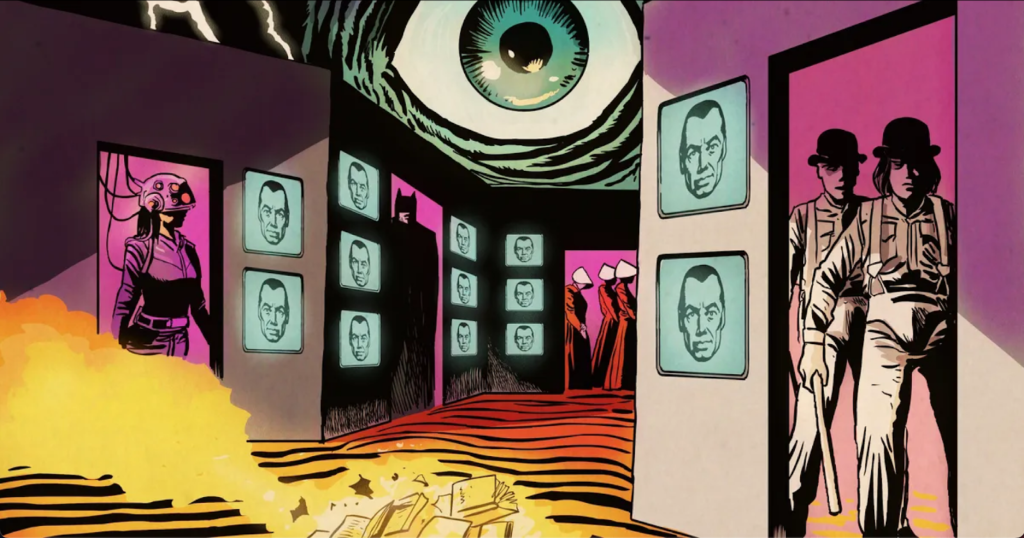
Like many individuals my age, books like Divergent or The Hunger Games were an incredibly influential part of my childhood. Kids would run around teaching each other how to do the “Katniss braid”, or asking what faction you would be a part of. And while I may not have seen it at the time, these books (and others like them) would become deeply influential to my understanding of the socio-political climate that I would come to live in. Through this article, I wish to look back at the past and forward to the future with respect to the dystopian novel genre, as well as how it has continued to keep such a hold on us.
Dystopian novels provide a release from reality for those already in an oppressive system because we are able to look at the novel and say, “hey, at least it’s not that bad yet”. Ironically, we keep publishing novels with increasingly horrifying dystopias due to the fact that we are successfully creating the dystopias of the past. The concern over 1984’s surveillance has become a near reality with smart devices that listen to you and track your location, Fahrenheit 451 can be applied to book banning as well as a lack of media literacy that encourages the spread of harmful misinformation, and The Handmaid’s Tale is incredibly relevant in light of the overturning of Roe v. Wade. Even the Hunger Games and Divergent explore the struggles of an oppressive government regime and the hardships of poverty amidst fighting for your civil rights. The reason these dystopian novels read so well is that they take a valid concern of their time period and push it to the most logical extreme in order to extract a sense of horror from the audience at the possibility of dystopia becoming a reality. Dystopia does so well because the audience recognizes, consciously or subconsciously, that it is possible.
One of the most appealing aspects of dystopian fiction, though, is the hero. In the wake of understanding our own oppression, we desperately want someone to save us. The oppressive systems of the real world are far too heavy for one individual to combat alone, and one of the most common dystopian hero character arcs is understanding the oppressive nature of the entire system that needs to be dismantled, and that their job is not so easily accomplished without help. Therefore we indulge our suspension of belief and side with fantasy a bit further to provide the relief that someone might be able to truly save us all. While the modern dystopia we live in demands our attention if we want to change our future, it is important to retain hope in the face of fear. Dystopian novels provide us with just that: hope.
